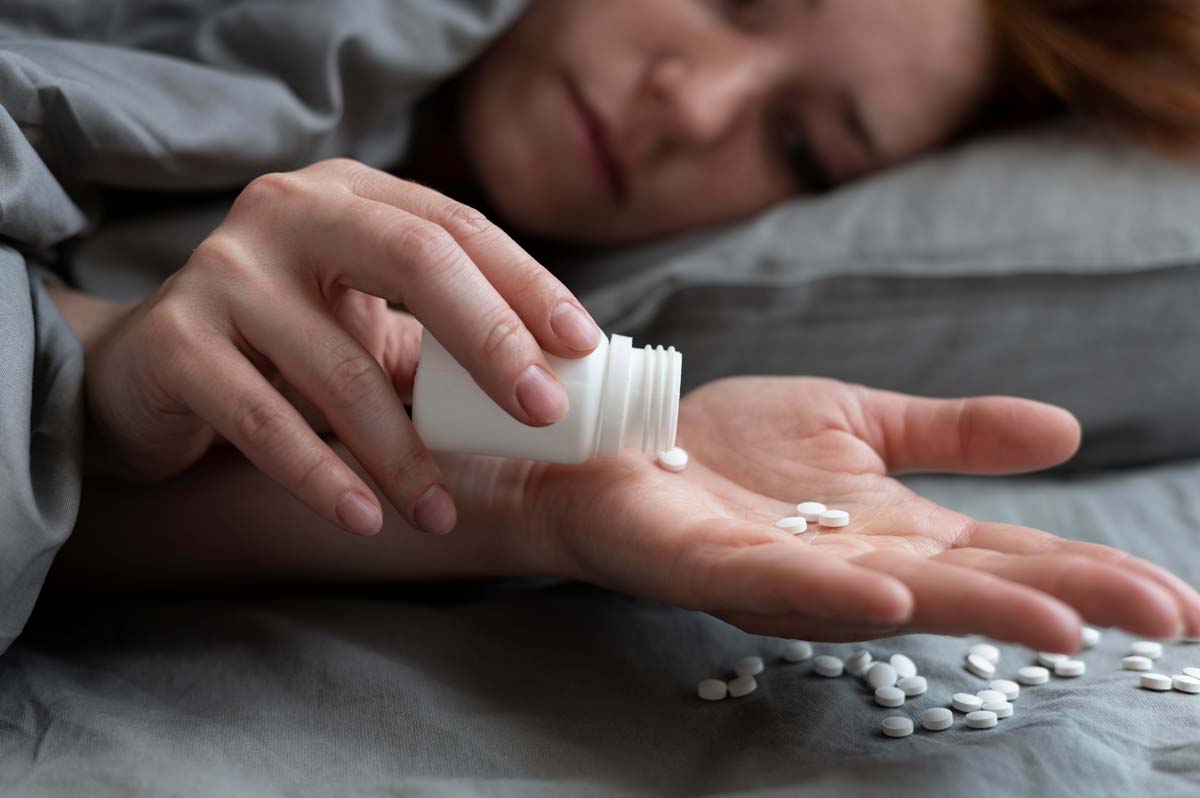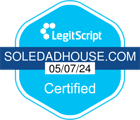Addiction, whether to substances or behaviors, can be an incredibly lonely journey. It often shrouds those affected in secrecy, shame, and isolation. However, the first and most courageous step towards healing is acknowledging the need for help. Discover all you need to know about Benzodiazepine Addiction, and how you can recover.
What Are Benzodiazepines?
Benzodiazepines, often referred to as “benzos,” are a class of prescription medications commonly used to treat anxiety, insomnia, and other mental health conditions. They work by enhancing the effects of the neurotransmitter GABA in the brain, which produces a calming and sedative effect. While benzos can be effective when used as prescribed, they also carry a high risk of addiction when misused or taken for an extended period.
The History of Benzodiazepines
Benzodiazepines, or benzos, have been a significant part of the medical world since their discovery in the mid-20th century. Here’s a glimpse into their development and evolution:
Discovery and Development
- 1950s – 1960s: The Swiss pharmaceutical company Hoffmann-La Roche played a pivotal role in the development of benzodiazepines. Dr. Leo Sternbach, a chemist at the company, discovered the first benzodiazepine, chlordiazepoxide (Librium), in 1955. This marked the beginning of a new era in psychopharmacology.
- 1960s – 1970s: The introduction of diazepam (Valium) in the early 1960s further solidified the popularity of benzodiazepines. Valium became known as a “wonder drug” for its ability to treat anxiety and other mental health conditions.
Widespread Use
- 1970s – 1980s: Benzodiazepines gained widespread use and were among the most prescribed medications in the United States and other countries. They were considered safe and effective for various anxiety and sleep disorders.
Growing Concerns
- 1990s – 2000s: As benzodiazepine use continued to rise, so did concerns about their potential for dependence and addiction. It became clear that these medications, while valuable for short-term use, posed risks when used for extended periods.
Recent Trends
- 2010s – Present: In recent years, efforts have been made to raise awareness about the dangers of long-term benzodiazepine use and the potential for addiction. Healthcare professionals are now more cautious when prescribing these medications.
Benzodiazepine Addiction Statistics
Understanding the prevalence of benzodiazepine addiction is crucial for addressing this growing concern. Here are some key statistics:
- According to the Substance Abuse and Mental Health Services Administration (SAMHSA), in 2020, approximately 5.2 million adults aged 18 and older reported past misuse of benzodiazepines in the United States.
- Research published in JAMA Psychiatry in 2020 found that the use of benzodiazepines among adults in the U.S. increased significantly between 2015 and 2018.
- The National Institute on Drug Abuse (NIDA) reports that benzodiazepine misuse is often associated with opioid use, further complicating addiction treatment.
- A study published in JAMA Network Open in 2020 revealed that benzodiazepine-related overdose deaths have risen substantially in recent years.
Signs of Benzodiazepine Addiction
Recognizing benzodiazepine addiction is crucial for early intervention and treatment. Here are some common signs and symptoms to watch out for:
- Increased Tolerance: Needing higher doses of benzodiazepines to achieve the same effects.
- Withdrawal Symptoms: Experiencing physical and psychological discomfort when attempting to stop or reduce benzodiazepine use.
- Loss of Control: Inability to limit or control benzodiazepine use.
- Neglecting Responsibilities: Neglecting daily obligations, work, or personal relationships due to benzodiazepine use.
- Social Isolation: Withdrawal from social activities and relationships.
- Mood Changes: Frequent mood swings, anxiety, or depression.
- Doctor Shopping: Seeking multiple prescriptions from different doctors.
- Lack of Interest in Activities: Loss of interest in previously enjoyed activities.
Soledad House: Dual Diagnosis Addiction Recovery
Soledad House is a leading dual-diagnosis addiction treatment center for women located in San Diego, CA. Our dedicated team of professionals specializes in addressing both addiction and co-occurring mental health disorders. Here’s how we can assist you or your loved one in the journey to recovery:
- Customized Treatment Plans: We create personalized treatment plans tailored to your specific needs, ensuring a comprehensive approach to recovery.
- Medical Detoxification: Our medically supervised detox program helps you safely manage withdrawal symptoms.
- Therapeutic Interventions: We offer evidence-based therapies such as cognitive-behavioral therapy (CBT), dialectical behavior therapy (DBT), and trauma-informed care to address underlying issues.
- Group Support: Engage in group therapy sessions to connect with others facing similar challenges.
- Holistic Approach: Our holistic approach includes mindfulness practices, yoga, nutrition, and physical fitness to promote overall well-being.
- Family Involvement: We involve families in the recovery process through education and support to foster healing and understanding.
- Aftercare Planning: Soledad House provides comprehensive aftercare planning to help you maintain sobriety and mental health stability post-treatment.
Take the First Step to Recovery
Don’t let benzodiazepine addiction control your life any longer. Soledad House is here to help you or your loved one embark on the path to recovery. Contact us today to discuss your unique situation and start your journey towards a healthier, happier future.
FAQs
How long does benzodiazepine addiction treatment at Soledad House typically last?
Treatment duration varies based on individual needs, but it usually ranges from 30 to 90 days.
Is Soledad House exclusively for women with dual-diagnosis addiction?
Yes, Soledad House specializes in providing treatment for women with co-occurring addiction and mental health issues.
What types of insurance do you accept?
Soledad House accepts various insurance plans. Contact us for a personalized assessment of your coverage.
Are family members allowed to participate in therapy sessions?
Yes, we encourage family involvement and offer family therapy to support the recovery process.
Is Soledad House accredited and licensed?
Yes, Soledad House is accredited and licensed by the appropriate regulatory bodies to ensure the highest standards of care.





